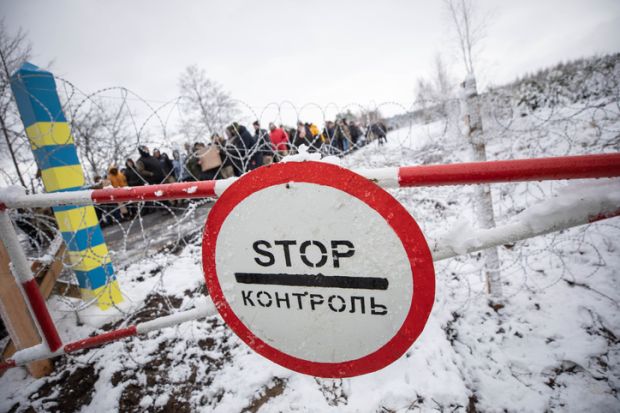While Russian troops intensify their bombardment of Ukrainian cities, thousands of Indian students stranded inside the country are becoming increasingly desperate – but amid the chaos, a small army of volunteers is springing into action.
In recent days, a dozen or so students and activists have been manning the phone lines, acting as a “bridge” to keep information flowing between students, parents and the Indian government.
“The volume of requests from students plus families is just crazy,” said Sanam Arora, chair of the National Indian Students and Alumni Union UK and an adviser for the non-profit organisation Rescuing Every Distressed Indian Overseas (REDIO), two groups that have been working to help Indian students flee.
Ms Arora said REDIO – which, by sheer coincidence, was established days before Russia invaded Ukraine – has been overwhelmed with pleas for help and is now in contact with more than 4,800 students. She estimated that this was a quarter of the total number.
Indian students make up by far the largest overseas cohort in the country, with more than 14,300 of them studying there in 2020, according to figures from the United Nations Educational, Scientific and Cultural Organisation.
Unlike western European students, many of whom left Ukraine as Russian tanks gathered on the border, the majority of Indian students – for whom home is far away and travel expensive – stayed put. Weeks later, they have found themselves trapped in a war zone even as more than 660,000 refugees have fled Ukraine.
Huddled in basements and metro stations, these students are struggling to get accurate information on what to do. They are also running out of food and water.
Their situation became even more acute this week after an Indian student was killed on 1 March when the eastern Ukrainian city of Kharkiv came under heavy fire.
Avik Sarkar, whose brother Shubhranil Dey is a medical student studying at Karazin University in Kharkiv – which has seen heavy shelling in recent days – said that back in India, the situation has “taken over our sleep”.
“From the very first day of the attack, our family has been under tremendous stress,” he said.
And in Ukraine, students are struggling to understand what they should do, said Ms Arora. “It doesn’t appear safe for them to stay there, and how long can one stay without food and amenities?” she said.
She said her organisations were helping the Indian government to track students as they move in the country and call ahead to officials across the border.
Recently, she kept in touch with a group of 40 of them who travelled more than three days to the Romanian border.
Those who reach the border face hours, sometimes days, of waiting, often in freezing temperatures. There have also been reports of racism, with Ukrainians allegedly being let through ahead of black and brown people.
But Ms Arora was there to see them through: “I spoke to someone on ground so they had details of these students, gave the students reassurance, spoke to parents – because they’re breaking down, really, really stressed; that support from a distance helps.”
After that, she lost contact for a day, something that often happens when students cross the border and their phones lose signal. But the next morning, she heard that they had landed in India.
While some families have expressed frustration with the Indian government, Ms Arora said officials were doing what they could.
“It’s impossible for the government to reach absolutely everybody – there’s just not enough people on ground, and there can’t be because the scale of issue is so large,” she said.
Still, she said, more could be done, including providing urgently needed mental health support for returning students. For those who are stranded in the country, officials should be talking to Russia and Ukraine to guarantee a safe passage out, she said.
“I don’t want to appear ungrateful,” said Ms Arora, “but we need people in the eastern side of country in particular to be given safe passage.”
Even as diplomatic efforts are under way, some students have decided that they can wait no longer. Mr Sakhar’s brother is among them.
“He, along with few of his friends, decided to take the train to Lviv…today, just before the Kharkiv blast, they happened to reach the station and board the train,” he said. “I hope he reaches home safely.”
Register to continue
Why register?
- Registration is free and only takes a moment
- Once registered, you can read 3 articles a month
- Sign up for our newsletter
Subscribe
Or subscribe for unlimited access to:
- Unlimited access to news, views, insights & reviews
- Digital editions
- Digital access to THE’s university and college rankings analysis
Already registered or a current subscriber? Login








